Search results for null
Books

Engaged
Dani Hoots
It's been three months since Chrys agreed to marry Zeus, and so far she hasn't figured out how to get out of this engagement. Not to mention she's fighting with her father, Hades, constantly and doesn't know if anything will be able to go back to normal.
Meanwhile, Huntley is still in London and is trying his best to help Chrys. He will stop at nothing to get her back, and to finally tell her how he truly feels.
The clock is ticking until the Summer Solstice. Will either of them be able to free Chrys from her marriage with Zeus?

Endangered
Dani Hoots
Hidden in the Underworld for thousands of years by her father Hades, Chrys wishes she could leave and see the human world. However, she knows that if any of the gods find her, and discover her dichotomous power over life and death, they will destroy her. So she has remained in the Underworld Palace for her entire life, making very few friends, and always bored as hell, no pun intended.
Huntley never imagined that after he died, he would wake up with a magnificent girl standing over him, especially one claiming to be the daughter of Hades. The Greek gods are real, and the god of the Underworld apparently has a daughter. Instead of sending him to the afterlife, she keeps him around to be her “tutor”, even though he obviously doesn’t have any expertise in anything other than being a punk. It is clear she wants him around to be her friend, and it is a task Huntley has no problem taking.
But after a big fight with her mother Persephone, Chrys can’t take it anymore and has to see what the human world is all about. Her and her two best friends decide to check out London, since that seems to be her mother’s favorite place recently.
It would just be for a couple of days, so nothing could go wrong on the streets of London, right?
Fans of Lore Olympus, Percy Jackson, and The Faerie Games will enjoy!
Daughter of Hades Series:
Book 1: Endangered
Book 2: Engaged
Book 3: Entangled
Book 4: Enchanted
Cover artist: Biserka Designs
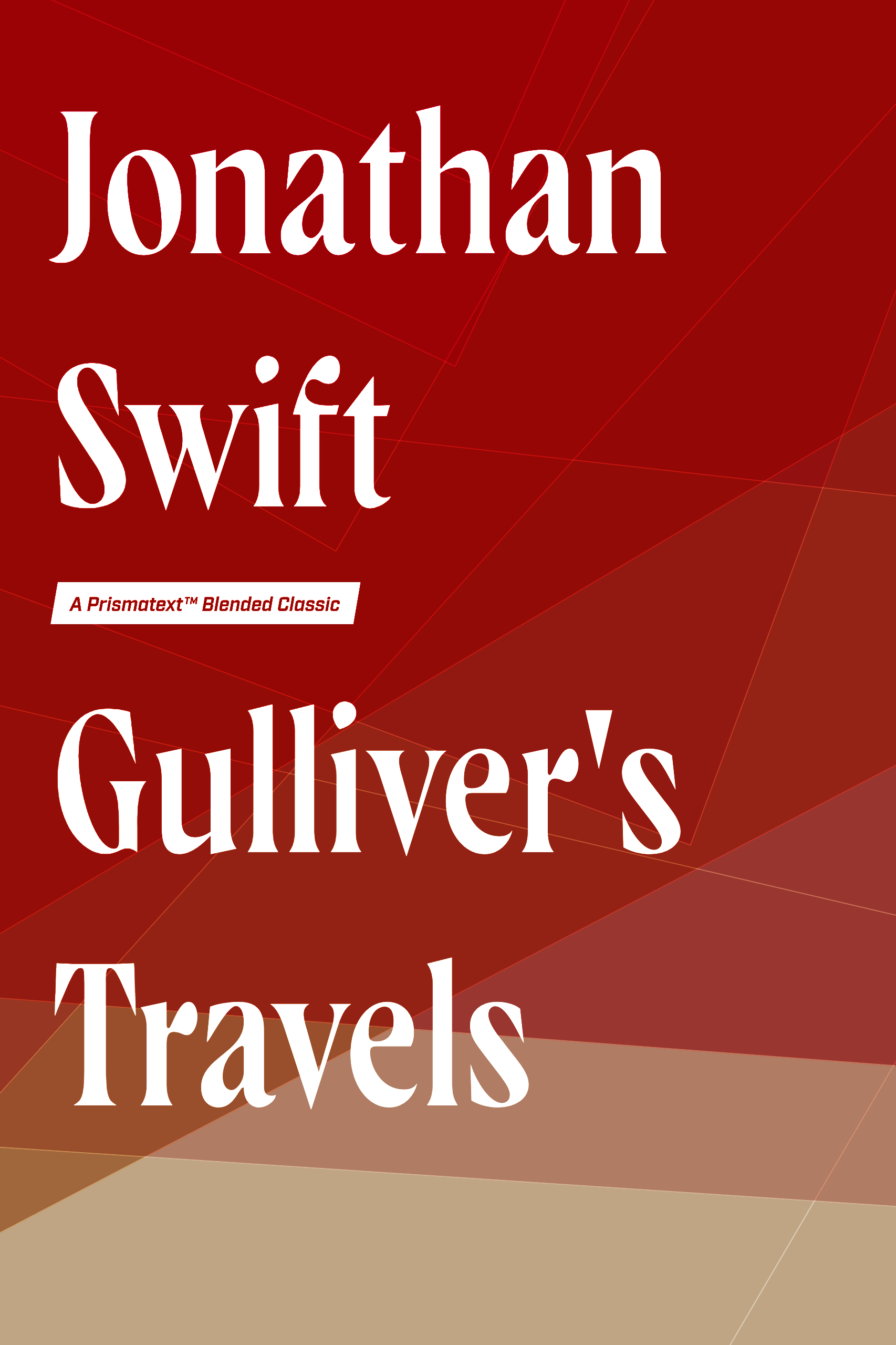
Gulliver's Travels
Jonathan Swift
From Wikipedia:
Gulliver's Travels, or Travels into Several Remote Nations of the World. In Four Parts. By Lemuel Gulliver, First a Surgeon, and then a Captain of Several Ships is a 1726 prose satire by the Anglo-Irish writer and clergyman Jonathan Swift, satirising both human nature and the "travellers' tales" literary subgenre. It is Swift's best-known full-length work and a classic of English literature. Swift claimed that he wrote Gulliver's Travels "to vex the world rather than divert it".
The book was an immediate success. The English dramatist John Gay remarked, "It is universally read, from the cabinet council to the nursery." In 2015, Robert McCrum released his selection list of the 100 best novels of all time, where he called Gulliver's Travels "a satirical masterpiece".

The Return
Dani Hoots
Everything is riding on the races.
As planned, I have entered the races to get back the map to Sanshli. Everything is riding on this and I cannot lose. Torn between my brother, Nygard, and Jack, I didn't know who to trust. The more I thought about it, the more I wondered if Nygard had it right—maybe we were more powerful and deserved to rule. Only time would tell, and the winner of the races would be able to find Sanshli and end this once and for all.
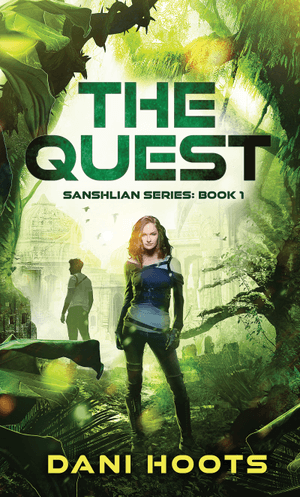
The Quest
Dani Hoots
Be thrown into another galaxy with this riveting YA Sci-Fi Trilogy!
There is only one way to bring back order to the galaxy, and that is by finding the legendary planet Sanshli.
Eleven Years ago, my life was ripped away from me. My father, my brother, my humanity. Everything. I was thrown into the Kamps, created to become a mindless machine. But I fought against it, not letting them take away my memories of the past.
And I succeeded.
It has been seven years since I was taken out of the Kamps and made into the Emperor's Shadow. Now I only take orders from him, and him alone, without question. That is, until my brother, whom I thought was dead, shows up and kidnaps me in order to help him find some long lost planet that our father used to tell stories about. According to the legend, any who find the planet Sanshli can rewrite the past, and my brother wants to use it to destroy the Empire. My loyalty will always be to the Emperor, but what if this planet is real? And the longer I stay with my brother, the more I begin to find that the Emperor has been keeping secrets from me. But I can't turn my back on him...
Or can I?

The Journey
Dani Hoots
Now it is time to figure out who I really am.
A year has passed since we were all on Sanshli. My idiot brother decided to pull out the sword and now we were stuck in the past, all in new bodies. Like my life wasn't complicated enough.
But now it was going to get even more complicated.
Time was running out and I had to finish my mission: destroy Nygard once and for all. I knew I would be on my own for this one, as I was the only one who I could trust. And there was always Jack, but I still didn't know where he was. Hopefully it would all make sense soon.
But what were the odds of that?

The Secret of Chimneys
Agatha Christie
A young traveler, Anthony Cade, delivers a parcel to an English country estate for a friend, and winds up in the middle of a conspiracy of international proportions. There is a mysterious master criminal on the loose who evades both Scotland Yard and the French Sûreté. Dive in to see what befalls Anthony at the country estate of Chimneys.

The Grit in the Pearl
Lyndsy Spence
Margaret, Duchess of Argyll (1912-1993) was an international celebrity in her youth, adored and observed by millions. But in 1963, the year of the Profumo Affair, the 11th Duke of Argyll shocked the country when he alleged that his adulterous wife had slept with over 80 men behind his back. He produced, as his evidence, a set of sexually explicit Polaroid photographs and explosive love letters. The duke won a divorce, but this had a dramatic effect on Margaret's life. On the verge of financial destitution, she fell from grace and was abandoned by most of her friends prior to her death in a nursing home in Pimlico in 1993.
Lyndsy Spence tells a tragic story of the life and downfall of this fascinatingly complex woman, and shows how she fell victim to a cruel husband, harsh social mores, and an unforgiving class. It uses new sources, including taped conversations, an unexpurgated transcript of her divorce trial, interviews, and letters. The Grit in the Pearl is a meticulously researched and powerful biography, which acts as a potent lens on various themes in the last century: fame, privacy, the media, sex, power, and relationships between classes.
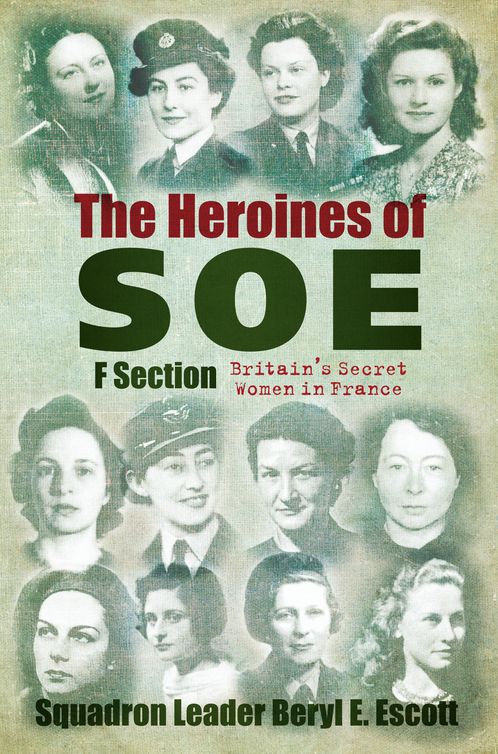
The Heroines of SOE
Beryl E. Escott
Britain’s war in the shadows of male spies and subterfuge in the heart of occupied France is a story well known, but what of the women who also risked their lives for Britain and the liberation of France? In 1942 a desperate need for new recruits, saw SOE turn to a previously overlooked group – women. These extraordinary women came from different backgrounds, but were joined in their idealistic love of France and a desire to play a part in its liberation. They formed SOE’s F Section. From the famous White Mouse, Nancy Wake, to the courageous, Noor Inayat Khan, they all risked their lives for King, Country and the Resistance. Many of them died bravely and painfully, and often those who survived, like Eileen Nearne, never told their stories, yet their secret missions of intelligence-gathering and sabotage undoubtedly helped the Resistance to drive out their occupiers and free France. Here, for the first time is the extraordinary account of all forty SOE F women agents. It is a story that deserves to be read by everyone.
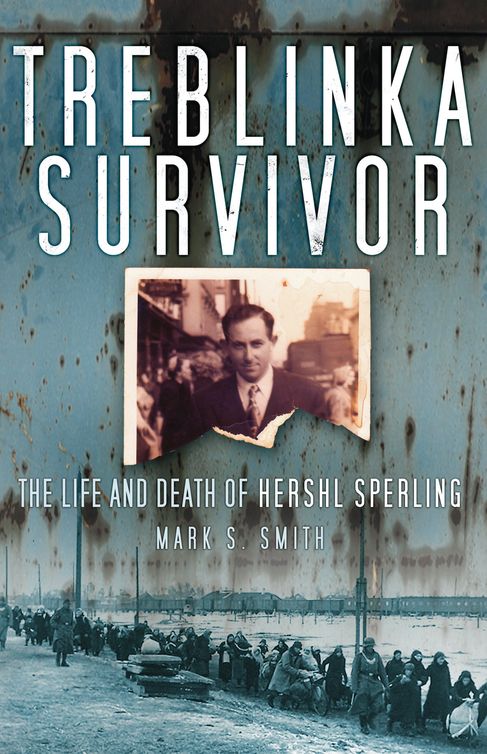
Treblinka Survivor
Mark Smith
The story of a man who survived Treblinka, to be haunted by his memories for 50 years—and ultimately, to be killed by them More than 800,000 people entered Treblinka and fewer than 70 came out. Hershl Sperling was one of them. He escaped. Why then, 50 years later, did he jump to his death from a bridge in Scotland? The answer lies in a long-forgotten, published account of the Treblinka death camp, written by Hershl Sperling himself in the months after liberation, discovered in his briefcase after his suicide, and reproduced here for the first time. Including previously unpublished photographs, this book traces the life of a man who survived five concentration camps, and details what he had to do to achieve this. Hershl's story, from his childhood in a small Polish town to the bridge in faraway Scotland, is testament to the lasting torment of those very few who survived the Nazis' most efficient and gruesome death factory. The author personally follows in his subject's footsteps from Klobuck, to Treblinka, to Glasgow.

Titanic: A Survivor’s Story
Archibald Gracie
Here is a survivor's vivid account of the greatest maritime disaster in history. The information contained in Gracie's account is available from no other source. He provides details of those final moments, including names of passengers pulled from the ocean and of those men who, in a panic, jumped into lifeboats as they were being lowered, causing injury and further danger to life. Walter Lord, author of 'A Night to Remember', comments that Gracie's book - written shortly before he died from the exposure he suffered on the night - is "invaluable for chasing down who went in what boat", and calls Gracie "an indefatigable detective".
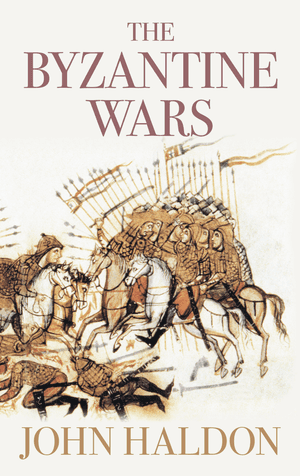
The Byzantine Wars
John Haldon
By the middle of the sixth century the Byzantine emperor ruled a mighty empire that straddled Europe, Asia and North Africa. Within 100 years, this powerful empire had been cut in half. Two centuries later the Byzantine empire was once again a power to be reckoned with, and soon recovered its position as the paramount East Mediterranean and Balkan power, whose fabulous wealth attracted Viking mercenaries and central Asian nomad warriors to its armies, whose very appearance on the field of battle was sometimes enough to bring enemies to terms. No book has ever attempted a survey of Byzantine wars, and few accounts of Byzantine battles have ever been translated into a modern language. This book will provide essential support for those interested in Byzantine history in general as well as a useful corrective to the more usual highly romanticised views of Byzantine civilisation.